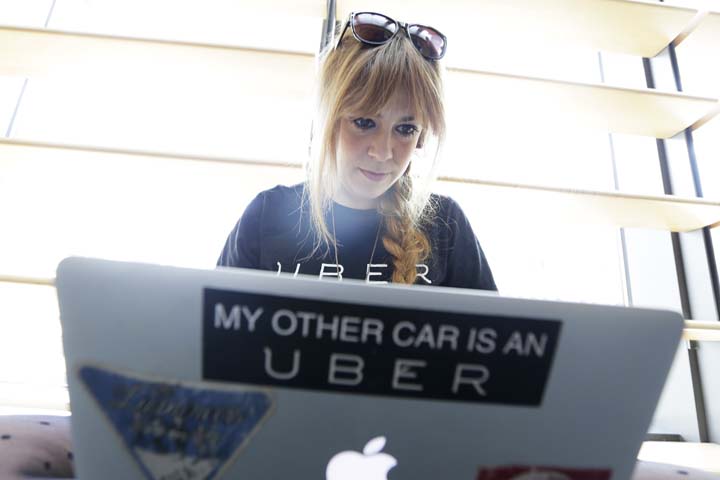Advertisement
Making Do In A Makeshift Economy
ResumeWe’ll look at workers trying to live and make a living in the age of TaskRabbit and computer-driven work schedules.

A lot of Americans work all kinds of crazy hours these days to pay the bills. Doctors do. Lawyers can. Maybe you do. It can make for a stressful life. Especially if the hours are irregular. All over the map. And especially if the work is low-wage. A doctor might hire a nanny. A stock clerk, a barrista, a Wal-Mart associate – not likely. But last-minute, all-over-the-clock-and-week shift assignments have become common. You can’t plan. You don’t know. And then there’s freelance work. This hour On Point: hanging on, making do in the makeshift, all-over-the-clock economy.
-- Tom Ashbrook
Guests
Ann Huff Stevens, director of the Center for Poverty Research at the University of California, Davis. Professor and chair of the department of economics at UC-Davis.
Brad Stone, senior writer for Bloomberg Businessweek. Author of "The Everything Store: Jeff Bezos and the Age of Amazon." (@BradStone)
Allison Santana, Starbucks barista in Chester, Pennsylvania.
From Tom's Reading List
New York Times: Working Anything but 9 to 5 — "Along with virtually every major retail and restaurant chain, Starbucks relies on software that choreographs workers in precise, intricate ballets, using sales patterns and other data to determine which of its 130,000 baristas are needed in its thousands of locations and exactly when. Big-box retailers or mall clothing chains are now capable of bringing in more hands in anticipation of a delivery truck pulling in or the weather changing, and sending workers home when real-time analyses show sales are slowing."
Bloomberg Businessweek: Work-Life Balance and the New Night Shift — "With the growing irresistibility of the smartphone and the ubiquity of cloud collaboration, evening work for many professionals has become standard. We come home from the office, change into more comfortable clothes, put the kids to bed, and maybe open a bottle of wine. And then we grab our laptops and log back in."
The Wall Street Journal: TaskRabbit Chief Aims to Recast Freelance Work --"Like other companies in the largely venture-backed peer-to-peer economy, including Uber Technologies Inc. and Airbnb Inc., TaskRabbit is still tweaking its business model. Recently, in a move meant to increase margins and boost user experience, the company upended the way tasks are farmed out on its site, shifting from an auction model to automated algorithms that match workers with people requesting household services."
This program aired on August 21, 2014.